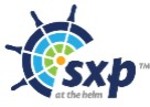Description

Timely

Tracked for Basecamp
Comprehensive Overview: Timely vs Tracked for Basecamp
Timely and Tracked for Basecamp are two distinct products designed to tackle specific needs related to time tracking and project management.
a) Primary Functions and Target Markets
Timely:
- Primary Functions: Timely is an automatic time tracking software that uses AI to help users manage their time more efficiently. Its core feature is the automatic capture of time spent across various applications, tasks, and projects, without the need for manual entry. Timely offers features like project budgeting, team time tracking, reporting, and billing integrations. Its AI-powered memory tracker helps reduce the inaccuracies in time tracking and assists in maintaining transparency and accountability.
- Target Market: Timely primarily targets professionals, freelancers, small to medium-sized businesses, and enterprises that require precise time tracking without disrupting workflows. It appeals especially to industries such as consulting, legal, marketing, and creative agencies where time billing is crucial.
Tracked for Basecamp:
- Primary Functions: Tracked for Basecamp is an add-on specifically designed to enhance Basecamp’s project management capabilities by adding time tracking features. It enables users to log time directly within Basecamp, generate timesheets, view reports, and manage billable versus non-billable hours. This integration allows Basecamp users to stay within the same ecosystem without needing a separate time tracking tool.
- Target Market: Tracked for Basecamp targets existing Basecamp users who are looking for additional time tracking capabilities. Primarily, this includes project managers, teams in design and development sectors, and organizations already using Basecamp for project management and wish to extend its functionality.
b) Market Share and User Base Comparison
- Timely has established itself as a significant player in the time tracking niche due to its distinct automated time tracking approach. It has a broader appeal across industries beyond just those using specific project management tools.
- Tracked for Basecamp is more of a niche solution, as it specifically adds functionality to Basecamp. Its user base is inherently limited to Basecamp users who are in need of time tracking features, thus its market share is smaller compared to standalone time tracking solutions like Timely.
c) Key Differentiating Factors
-
Automation and Intelligence: Timely stands out with its AI-driven automation, reducing the manual workload involved in tracking time and offering advanced features like automatic categorization and memory-enabled tracking, which are not available in Tracked for Basecamp.
-
Integration and Ecosystem Alignment: Tracked for Basecamp’s strongest differentiator is its seamless integration within the Basecamp ecosystem. It provides time tracking functionalities directly within Basecamp’s interface, which is appealing for existing Basecamp users who prefer a unified system.
-
Feature Set: Timely offers a comprehensive set of features including budget management and invoicing, making it suitable for financial management related to time tracking. On the other hand, Tracked for Basecamp focuses on enhancing time tracking capability without adding unnecessary complexity to Basecamp’s core project management features.
-
Scalability and Flexibility: Timely’s ability to cater to different sized teams and multiple industries with varying needs gives it an edge in terms of scalability. In contrast, Tracked for Basecamp is limited by its dependency on users being invested in the Basecamp platform.
In summary, Timely and Tracked for Basecamp serve different needs and markets through their unique set of features and integration focus. Their adoption depends on organizational needs related to time tracking and project management, particularly concerning integration with existing tools and workflows.
Contact Info

Year founded :
2012
Not Available
Not Available
Canada
Not Available

Year founded :
Not Available
Not Available
Not Available
Not Available
Not Available
Feature Similarity Breakdown: Timely, Tracked for Basecamp
When evaluating Timely, Tracked, and Basecamp, it's important to analyze how these project management and time-tracking tools stack up against each other, especially in terms of their core features, user interfaces, and any unique aspects they offer.
a) Core Features in Common
1. Time Tracking:
- Timely: Known primarily for its automatic time tracking capabilities, Timely uses AI to track time spent on various tasks and projects without requiring manual input.
- Tracked: A simple and effective time tracking tool that helps users track how time is spent on tasks and projects manually.
- Basecamp: Although not a dedicated time-tracking tool, Basecamp provides basic time tracking through integrations with other apps.
2. Project Management:
- Timely: While primarily a time-tracking app, it offers project management features such as planning and task allocation.
- Tracked: Focuses more on time tracking but offers basic project organization tools.
- Basecamp: A comprehensive project management tool that offers to-do lists, file sharing, messaging, and milestone management.
3. Reporting and Analytics:
- Timely: Offers detailed reports with insights into time spent, productivity, and project progress.
- Tracked: Provides simple reporting features that focus on time spent and efficiency.
- Basecamp: Offers reports on project activities and timelines, often requiring integrations for detailed time analytics.
b) User Interface Comparison
- Timely: Known for its sleek and modern interface with intuitive navigation. It uses a timeline view to help visualize where time is going, making it user-friendly for automatic time tracking.
- Tracked: Provides a clean and straightforward interface focused on simplicity and ease of use. The layout is intuitive, catering to users who prefer manual entry of their time spent.
- Basecamp: Features a more traditional project management UI with multiple sections for tasks, messages, files, and schedules. Its layout is designed for comprehensive project management, which might seem cluttered compared to more focused time tracking tools.
c) Unique Features
Timely:
- Automatic Time Tracking: Uses AI to automatically track time, reducing the need for manual input, which can save significant time for users.
- Memory Tracker: Records all activities on the computer, offering a detailed breakdown of how time is spent, which is particularly useful for freelancers and small teams.
Tracked:
- Simplicity: Its greatest strength is its simplicity and ease of use, tailored for users who want minimal complexity in their time tracking tools.
Basecamp:
- Comprehensive Project Management: Offers a wide array of tools for collaboration, communication, and file management, making it more suitable for teams that need an all-in-one project management solution.
- Client Access: Facilitates collaboration with clients by allowing them access to specific parts of projects, enhancing transparency and communication.
In summary, while Timely, Tracked, and Basecamp share some core functionalities related to time tracking and project management, they differ significantly in approach, with Timely pioneering automatic tracking, Tracked focusing on simplicity, and Basecamp excelling in comprehensive project management solutions.
Features

Time Tracking
Project Management
Team Management
Integrations

Time Tracking and Reporting
Customization Options
Task Integration
User-Friendly Interface
Team Collaboration
Best Fit Use Cases: Timely, Tracked for Basecamp
Timely and Tracked for Basecamp serve distinct purposes and audiences, making them suitable for different types of businesses and projects. Here’s a detailed breakdown of their best fit use cases:
a) Timely
Types of Businesses or Projects:
-
Creative Agencies:
- Use Case: Timely can automatically track the time spent across various projects, applications, and websites. Creative agencies often juggle multiple clients and projects simultaneously, making it critical to accurately account for the time spent on creative tasks such as design, brainstorming, and revisions.
-
Consulting Firms:
- Use Case: These firms often work on billable hours and need precise documentation of time spent on research, client meetings, and report preparation. Timely’s automation reduces administrative overhead, allowing consultants to focus more on client work.
-
Software Development Teams:
- Use Case: Development projects require meticulous time tracking to measure productivity and project timelines. Timely’s ability to integrate with tools like Git and Trello helps developers keep a detailed account of time spent on coding, debugging, and project management.
-
Freelancers and Independent Contractors:
- Use Case: For those who need to track billable hours easily, without the hassle of manual logging, Timely provides a seamless, automated solution.
Company Sizes:
- Suitable for small to medium-sized enterprises (SMEs) and independent professionals who prioritize intuitive and automatic time tracking.
b) Tracked for Basecamp
Scenarios as the Preferred Option:
-
Teams Already Using Basecamp:
- Use Case: Tracked is specifically built for Basecamp users. For teams already deeply integrated into the Basecamp ecosystem for project management, using Tracked is a natural extension to manage time-tracking efficiently without switching between platforms.
-
Project-Based Teams:
- Use Case: Companies that operate on a project-by-project basis, such as architecture firms or marketing teams, may find Tracked useful for the detailed tracking of project phases and hours within Basecamp.
-
Collaborative, Remote Teams:
- Use Case: Given Basecamp’s strengths in communication and collaboration, Tracked can help remote teams streamline their workflows by keeping track of hours and productivity directly within their main project management tool.
Company Sizes:
- Ideal for small and medium-sized businesses (SMBs) and teams that have already adopted Basecamp as their primary project management tool and want seamless integration for time tracking.
c) Industry Verticals or Company Sizes:
Timely:
- Industries: Creative industries, IT and software, consulting, marketing, legal, etc.
- Company Sizes: Best for small to medium businesses; however, scalable solutions can support larger teams needing robust time management.
Tracked for Basecamp:
- Industries: Suitable for any industry using Basecamp, such as marketing, event planning, construction, non-profit organizations, and education.
- Company Sizes: Small to medium-sized teams that are already embedded in the Basecamp ecosystem. Less emphasis on large-scale enterprises unless Basecamp is a central part of their workflow infrastructure.
Overall, the choice between Timely and Tracked for Basecamp largely depends on existing tools and workflows, the need for automation, and the level of integration desired with project management systems.
Pricing

Pricing Not Available

Pricing Not Available
Metrics History
Metrics History
Comparing undefined across companies
Conclusion & Final Verdict: Timely vs Tracked for Basecamp
To arrive at a fair and comprehensive conclusion regarding the choice between Timely and Tracked for Basecamp, let’s break down each aspect you're interested in:
a) Best Overall Value
Timely generally offers the best overall value, particularly for teams and individuals seeking highly automated and intelligent time tracking solutions. Timely excels in automatic tracking, reducing the administrative burden, offering integrations beyond Basecamp, and providing extensive reporting features, thereby appealing to a broader user base that values efficiency and time management.
b) Pros and Cons of Each Product
Timely:
-
Pros:
- Automatic Tracking: Timely’s automatic time-tracking capabilities minimize manual input, saving users significant time.
- Comprehensive Integrations: While it complements Basecamp well, it also integrates widely with other tools, adding versatility.
- Detailed Reporting: Allows for nuanced analysis, which is highly beneficial for project management and productivity assessments.
- User-Friendly Interface: The design and usability are generally praised for their intuitive nature.
-
Cons:
- Cost: Higher pricing tiers might be a consideration for smaller teams or freelancers on a tight budget.
- Learning Curve: Some users may require time to become accustomed to its full suite of features.
Tracked for Basecamp:
-
Pros:
- Integration with Basecamp: Seamless operation within the Basecamp environment is its most significant strength, providing an advantage for teams fully embedded in Basecamp.
- Simplicity: The tool is straightforward, with minimalistic design that appeals to users who need basic time tracking without functional overload.
-
Cons:
- Limited Features: The specialization in Basecamp integration means it lacks the broader feature set found in standalone solutions like Timely.
- Manual Workload: Typically requires more manual input compared to Timely’s automatic capabilities.
c) Recommendations for Users
-
For Basecamp-Exclusive Teams: If your team solely uses Basecamp and values simplicity, Tracked for Basecamp may serve all your needs without the overhead of extra features and costs.
-
For Teams Looking for Versatility and Automation: Teams that use multiple tools, require advanced analytics, or prefer automated solutions should consider Timely for its comprehensive functionality and efficiency benefits.
-
Budget Considerations: For those with budget constraints, evaluating the cost against the features used is crucial. If advanced features are not necessary, more budget-friendly tiers or solutions might be prioritized.
In conclusion, the decision hinges on your specific needs: choose Timely for feature-rich, automated tracking and detailed reporting across various platforms, or Tracked for Basecamp if your workflow is heavily dependent on Basecamp and simplicity suffices.
Add to compare
Add similar companies



